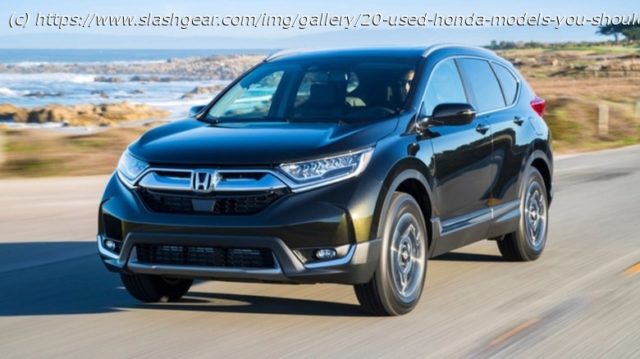Despite being one of the most reliable automakers in the world, Honda has had a few misses that caused specific model years to fall short.
Honda has a reputation for making some of the safest, most reliable cars on the road. Countless owners will attest to their Honda’s faultless years of service, and it’s true that, on the whole, Honda remains a reliable brand. However, not every one of the automaker’s cars is quite so bulletproof.
Some model years stand out as particularly troublesome, with hundreds of owners reporting faults and multiple recalls issued in many cases. These troublesome cars include many of Honda’s most popular models and cover a range of ages from near-classic to just a few years old.
SlashGear compiled safety data from the NHTSA including recalls, active investigations, and consumer complaints to create a list of model years worth avoiding if you’re looking for a reliable used car. Each one has proven to be markedly less reliable than Honda’s average, with issues that the brand took back to the drawing board for future vehicle generations.2023 Honda HR-V
A new generation of Honda’s Civic-based HR-V crossover was launched for the 2023 model year, with new styling, fresh tech, and improvements made to the powertrain and suspension. Our reviewer was impressed with the car’s charms and its competitive price tag, but in the few years since its launch, a strange flaw has been discovered with the car. Hundreds of owners have complained to the NHTSA about the rear window of their HR-V suddenly shattering, with no prior indication that anything was wrong.
Honda is aware of the issue, and has blamed it on a fault in the manufacturing process. According to the brand, the rear defroster on some cars was installed in a way that caused it to excessively heat the rear glass pane, which over time weakened the pane until it eventually shattered. As of this writing, Honda has not issued a recall regarding the issue, but owners with affected cars can contact Honda to initiate a repair.
However, the HR-V does have three active recalls open, including a faulty fuel pump, an improperly installed seat belt pretensioner, and a defective steering gearbox. The 2024 HR-V is also subject to the latter two recalls, but has far fewer owner complaints and is not known to suffer from the shattering window issue.2018 Honda Accord
Honda debuted its 10th-generation Accord for the 2018 model year, featuring updated styling, tech, and a new range of powertrain options. Unfortunately, it seems the freshly launched generation had some teething troubles, with NHTSA data recording five recalls and over 1,400 owner complaints. The most recent recall was issued on December 18th, 2023, and concerns a faulty fuel pump that might fail while driving. This isn’t the first recall related to the fuel pump either, as the 2018 Accord previously received another recall regarding the same part on May 28th, 2020.
One of the most common areas for consumer complaints was the car’s brakes, with owners reporting various issues including premature wear and persistent false braking system warning lights. Another common area of complaint was the engine, with multiple drivers reporting head gasket failure. Owner reports also back up the concerns cited in the fuel pump recall, with over 100 drivers reporting failures regarding the fuel pump system.
Perhaps the most concerning complaints of all, however, are those regarding the car’s forward collision avoidance system. Hundreds of drivers have alleged that their cars have suddenly braked with nothing seemingly obstructing their path, causing them to rapidly lose speed on the road and putting them at risk of colliding with traffic. NHTSA has received several dozen reports of injuries caused by alleged faulty emergency braking, and as of this writing, is actively investigating the issue.2008 Honda CR-V
The third-generation CR-V crossover was a big commercial success, sporting the practicality, economy, and sensibility that buyers expected from a Honda. It combined the higher ride height of an SUV with the comfort of a passenger car, helping to push crossovers ever further into the mainstream while providing a healthy boost to its maker’s bottom line. However, in recent years the 2008 model year CR-V has been plagued with multiple recalls and numerous complaints, somewhat tainting its reputation as an unbridled success for Honda.
According to the NHTSA, 11 recalls have been issued for the 2008 CR-V, nine of which concern its airbags. The dates of these recalls stretch from February 2016 through June 2019, with each concern originating from the defective Takata airbags fitted to a small number of CR-Vs. The Takata recall, it should be noted, was extremely broad in scale, affecting many of Honda’s most popular models alongside several other leading manufacturers.
However, what lands the 2008 CR-V on this list is that it also suffers from two model-specific failure points, as well as consumer complaints. In particular, corrosion seems to be a recurring issue, with one corrosion-related recall issued in 2023 and a high number of drivers reporting corrosion of the rear subframe. The automatic locking doors are also a very common point of failure, with hundreds of owners reporting doors locking or unlocking on their own, often while the car was driving.2016 Honda Pilot
Honda’s popular Pilot SUV was overhauled for the 2016 model year, debuting significantly more modern looks than its predecessor and a smattering of new cabin tech. The car’s powertrain options were also refreshed for the new generation, although the updated componentry seems responsible for a temporary blip in Honda’s build quality. The 2016 Pilot has been subject to seven recalls by the NHTSA, with a wide range of problems highlighted. One recall from 2021 states that a faulty hood latch striker can result in the hood flying open while driving, while another from 2023 concerns a manufacturing defect in the connecting rod bearing in the engine.
Not every 2016 Pilot is included in the 2023 recall, but drivers have reported extremely similar rod bearing failures in cars that supposedly do not have the faulty part. The model year has also been subject to over 1,300 complaints from drivers, around half of which center around issues with the car’s electrical systems. Other common complaints include faulty fuel pumps and repeated warning lights about the emissions system accompanied by a loss of power.2001 Honda Civic
With over 30 million examples sold since it first hit dealerships in 1973, the Civic is Honda’s best-selling model to date. A big part of its appeal has always been its affordability and reliability, but there are a few less dependable Civic model years that are worth avoiding. The 2001 model year is one of the most frequently complained about, with over 1,100 complaints made to the NHTSA as of this writing. Many of those center around the car’s airbags — the 2001 Civic was another model affected by the major Takata recall that eventually bankrupted the parts manufacturer.
However, the 2001 Civic also suffers a higher than average number of reports of powertrain problems, with transmission failure a particularly common failure point. A high number of owners have alleged transmission failure at high speed, with minimal or no warning given before the failure took place. To date, Honda has not issued a recall related to the transmission, and the NHTSA is not actively looking into the issue.1998 Honda Accord
The 1998 Honda Accord has been subject to 19 recalls to date, although the majority of those concern minor issues with missing reflectors in a small number of models. However, several more serious recalls have also been issued. The most recent was in 2020 when Honda recalled nearly 1.5 million cars sold between 1996 and 2000 over concerns with potentially faulty airbag inflators. Two much earlier recalls, dating back to 2002 and 2003, center around a defective ignition switch. A large number of recent owner complaints lodged with the NHTSA also mention the ignition switch, with some reports alleging the car’s engine shut off while on the road.






